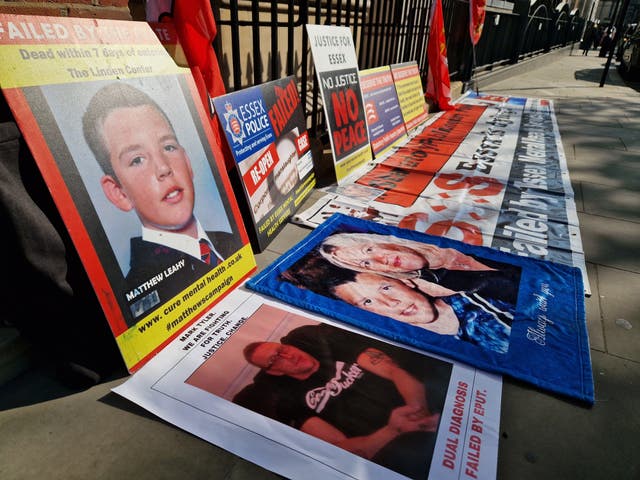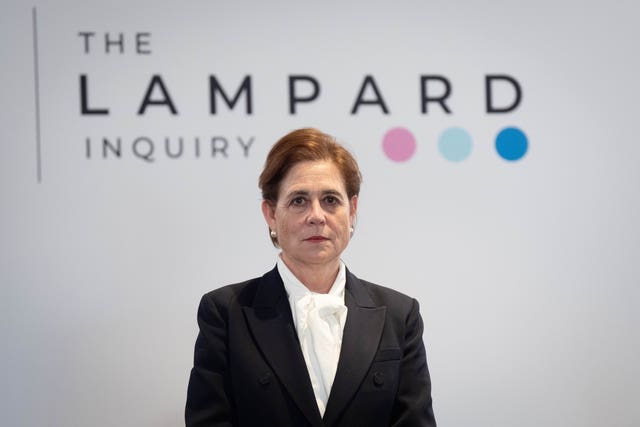Mental health deaths inquiry hears about ‘denial and defensiveness’
The falsification of safety records was ‘well known within the Essex context’, the Lampard Inquiry was told.

The default response of many NHS trusts is denial and defensiveness, an inquiry into the deaths of more than 2,000 mental health patients in Essex was told.
Deborah Coles, executive director of the charity Inquest, said that the falsification of safety records was “well known within the Essex context”.
Ms Coles, giving evidence to the Lampard Inquiry on Monday, said that Inquest has a team of 16 people and carries out specialist casework on state-related deaths.
The Lampard Inquiry, chaired by Baroness Kate Lampard, is examining deaths at NHS-run inpatient units in Essex between 2000 and 2023.
It will include those who died within three months of discharge, and those who died as inpatients receiving NHS-funded care in the independent sector.
Ms Coles told the inquiry: “One of the things that I think our work has identified thematically is that default response of many NHS trusts and private providers to kind of denial and defensiveness.

“And a lack of candour and of concern more about reputation management than being concerned about learning and seeking improvements.”
Nicholas Griffin KC, counsel to the inquiry, asked Ms Coles about “poor record-keeping including falsification”.
Ms Coles said she believed the “situation is well known within the Essex context, but with people just falsifying very significant safety records”.
Mr Griffin said Ms Coles makes reference in a statement to a “high prevalence of falsified observation records”.
Ms Coles confirmed that she did make reference to this, and continued: “I mean, if you think about the importance of observations to people who are particularly vulnerable, not least to self-harm and self-inflicted death, then observations are absolutely critical.
“To then see falsification does speak to a very worrying culture, I think.”
Earlier in Monday’s hearing, at Arundel House in central London, Ms Coles addressed loved ones of those who have died.
She said she wanted to “acknowledge the incredible strength, courage and determination of families who have been relentless in advocating for their loved ones in both life and in death and in having to fight for truth, justice and accountability”.

“We know the trauma of your bereavement but also the trauma in your dealings with the trust and the lack of candour and denial and false promises of learning and action and how retraumatising that has been,” she said.
“This inquiry I think is an absolute testament to your perseverance.
“When someone you love is taken into mental healthcare you expect them to be looked after and kept safe.
“The team at Inquest stand both in solidarity but in support for what you’ve achieved but also recognise the emotional and physical impact of what you’ve been and are still going through.
“You’ve ensured that a light is being shone behind the closed doors of these mental health settings and focusing a light on the candour of the trust and the truth must come out.”
Commemorative evidence from loved ones about those who died was given at a series of hearings last year, and this week is the third week of a three-week block of introductory hearings.
The introductory hearings will continue until Thursday, with the next block of hearings in July.





